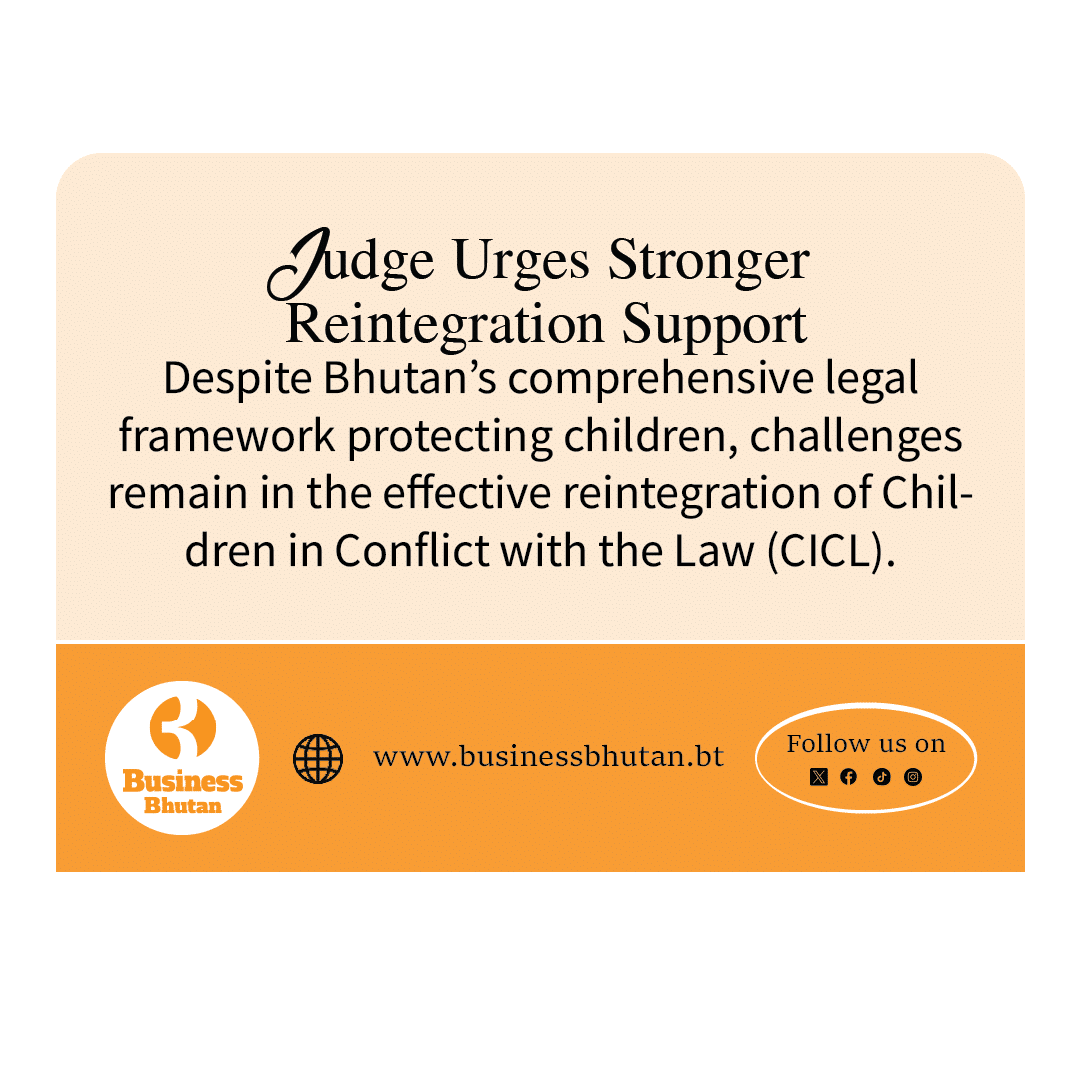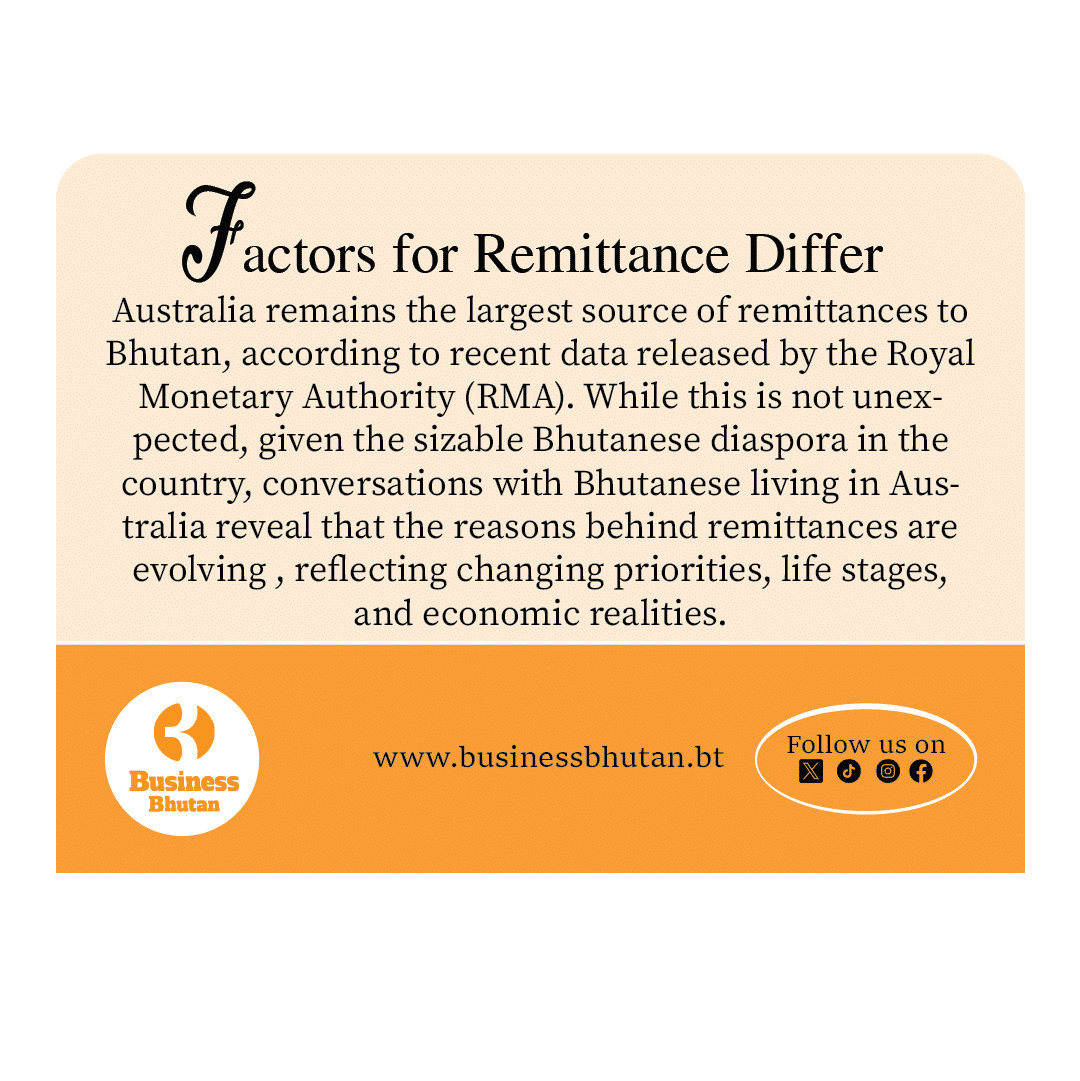Despite Bhutan’s comprehensive legal framework protecting children, challenges remain in the effective reintegration of Children in Conflict with the Law (CICL). According to Palden Wangmo, Judge of the Family and Child Bench, Thimphu, the country’s laws are well aligned with international standards, but implementation continues to lag behind.
“We have laws that are our strength, aligning with the Convention on the Rights of the Child (CRC) and other international instruments. However, there is a mismatch between what we have as law and what we have in terms of facilities and implementation on the ground,” she said, sharing that under the Child Care and Protection Act (CCPA) of Bhutan 2021, the country is required to establish special homes and rehabilitation facilities for children. However, in practice, there is a lack of such institutions. “We are supposed to have a special home for children, but there is a lack of institutional care and dedicated homes,” she said. She further added that there is also a shortage of trained child service providers in Bhutan, which affects the quality of care and support offered to CICL.
Despite challenges, reintegration remains the core principle of Bhutan’s child justice system, with emphasis on restorative and rehabilitative measures rather than punitive ones, aiming to help children rebuild their lives and reintegrate into their families and communities.
Bhutan ratified the United Nations Convention on the Rights of the Child (UNCRC) in 1990. The Constitution of Bhutan, the Penal Code of Bhutan (2004), and the Child Care and Protection Act (2011, amended 2021) collectively form the foundation of the child justice system in the country.
She said the CCPA is crucial for promoting reintegration through restorative justice, offering alternatives to detention, trial diversion, and community-based rehabilitation. Child cases are handled by specialized benches in a child-friendly environment, with diversion programs, probation, community service, and conditional discharge prioritizing rehabilitation. Protective measures, including in-camera hearings, pre-trial assessments, and mandatory legal representation, safeguard the child’s well-being.
Bhutan’s child justice system is guided by principles that prioritize the child’s well-being, best interest, minimal restriction of liberty, and the use of alternative sentencing. These ensure children are treated with compassion and offered rehabilitation rather than punished like adults.
Alternative sentencing is central to reintegration. Minor offenses often result in admonition or reprimand, allowing children to return home under supervision. For more serious cases, probation and community service help them take responsibility while remaining in society. Restitution and compensation also promote accountability, with parents or guardians sharing responsibility when necessary.
Dr. Chencho Dorji, a Consultant Psychiatrist at The Pema Center, said reintegration requires more than legal measures. “Changing a child’s behavior needs consistent social support,” he said, calling for investment in prevention, education, family support, and value-based upbringing.
Data from the Thimphu Family and Child Bench shows CICL cases have remained steady: seven cases in 2023, seven in 2024, and five so far in 2025. Common offenses include battery, deceptive practices, and burglary. Many children involved come from disadvantaged families, including single-parent and economically challenged households.
An official from The Pema Center said the organization, in partnership with UNICEF and the Royal Bhutan Police, is supporting the Youth Development and Rehabilitation Centre (YDRC) to strengthen reintegration services for CICL. “We plan to enhance services at YDRC, including counseling, vocational training, and community programs to equip children with life skills,” she said.
She added that while Bhutan’s laws provide a strong foundation, more must be done to bridge the gap between policy and practice. “Reintegration is a shared responsibility, especially for parents and the education sector.”
Nidup Lhamo
From Thimphu
















